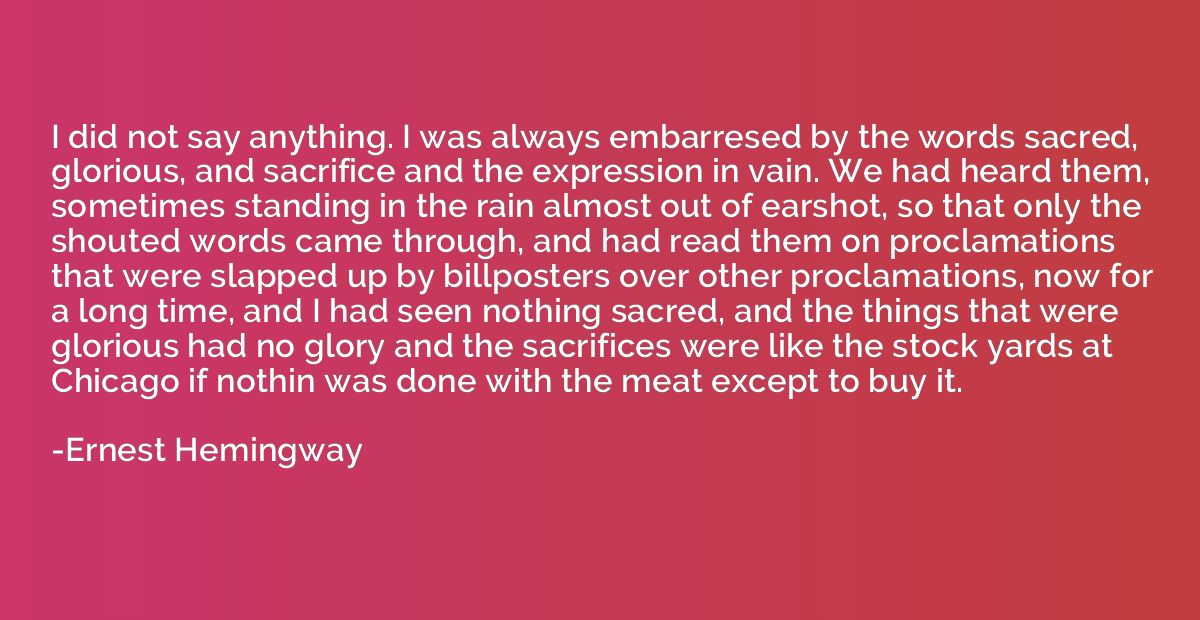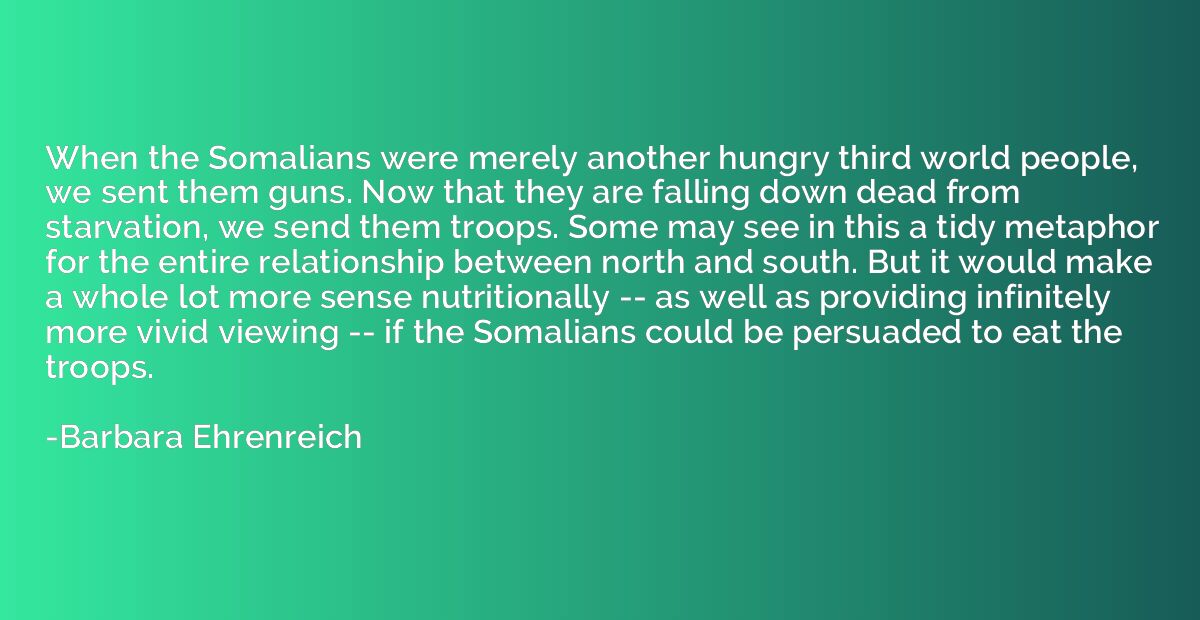Quote by Ernest Hemingway
I did not say anything. I was always embarresed by the words sacred, glorious, and sacrifice and the expression in vain. We had heard them, sometimes standing in the rain almost out of earshot, so that only the shouted words came through, and had read them on proclamations that were slapped up by billposters over other proclamations, now for a long time, and I had seen nothing sacred, and the things that were glorious had no glory and the sacrifices were like the stock yards at Chicago if nothin was done with the meat except to buy it.

Summary
This quote reflects a speaker's disillusionment with patriotic rhetoric and societal ideals during a time of conflict. The speaker feels a disconnect between the lofty words like "sacred," "glorious," and "sacrifice" that are used to describe war and the harsh reality they have witnessed. They have heard these words used in a distant, almost inaccessible manner, and seen them plastered on propagandistic proclamations. The quote suggests that the speaker's experiences have undermined their faith in the noble aspects of war, leaving them skeptical of any genuine meaning behind these words.














